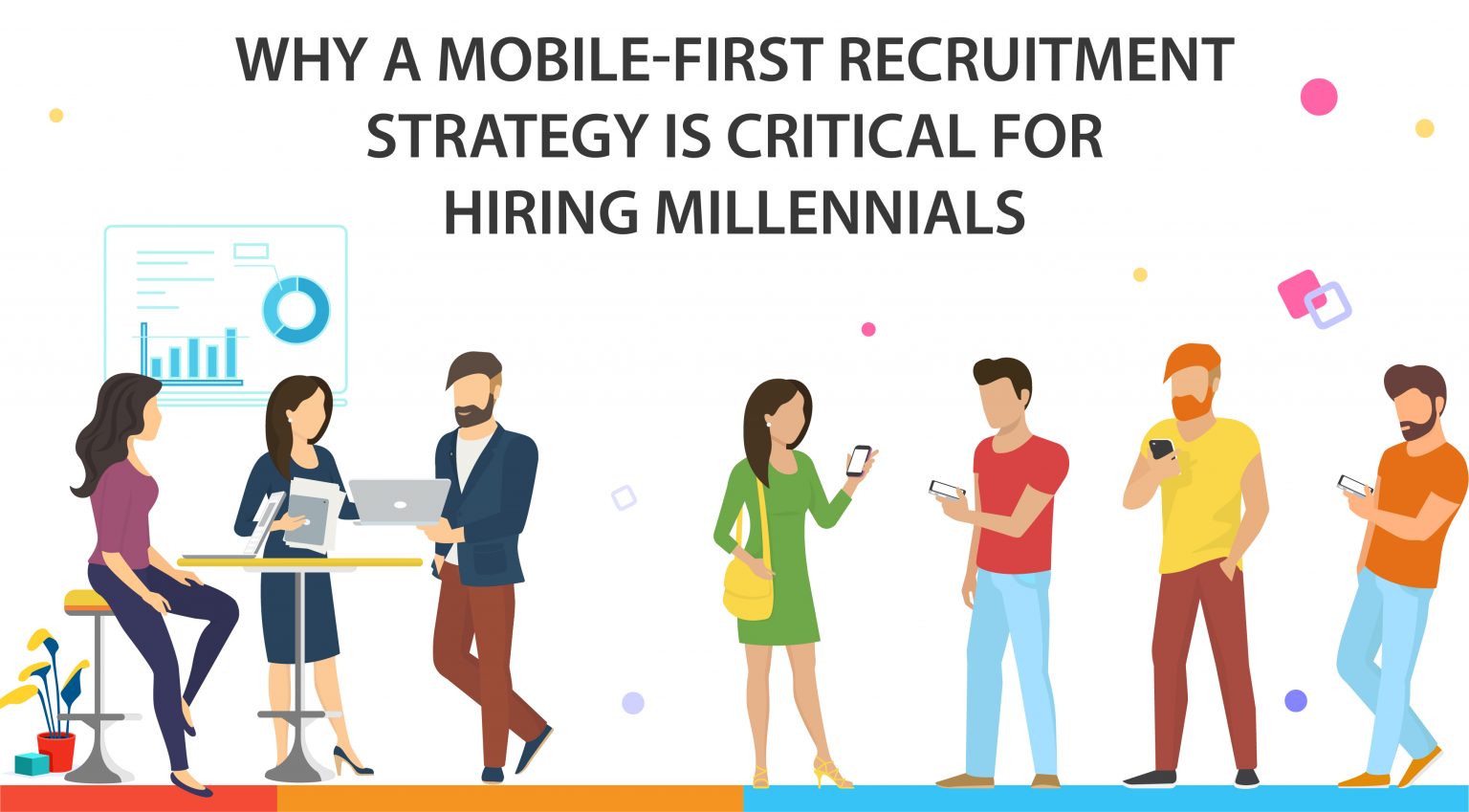Is your company having trouble finding and retaining competent employees? If your answer is in affirmative, you’re not alone. Companies across various industries face the considerable challenge of employee recruitment and retention. In fact, a study by CareerBuilder reveals that 50% of human resources managers currently have open positions for which they can’t find qualified candidates.
However, that’s not the only issue: in these times when the workforce is globalized and there are features like “easy apply” available, companies also need to identify which candidates are worth pursuing. It is not surprising why one of the primary goals of recruiters is to have more quality applications and a stunning pipeline of candidates for each position.
A major US convenience store chain, Cumberland Farms, having over 550 locations, was aiming to achieve this goal. They were focusing on building a robust and brand-leveraged base using organic channels and then decide whether they need to augment the hiring efforts through traditional job boards and paid resources.
The company, with its shift to an AI recruitment marketing platform, employed a mobile-first engagement strategy that skyrocketed the conversion rate on mobile, over ten times the industry average.
But here’s the question: why attract Millennials?
Millennials are forecast to make up half of the American workforce, and by 2025, 75 percent of the global workforce. Companies including Ernst & Young and Accenture have already reported that Millennials comprise over two thirds of their entire employee base. And in order to engage the generation who grew up with technology, smartphones, innovative platforms – and of course, games, recruiters need to think out of the box and come up with a mobile-first recruitment strategy.
With gamification in recruitment, employers can sift out the best candidates from a large talent pool without any unconscious bias and make sure applicants enjoy the assessment process. As a matter of fact, in a survey conducted by TalentLMS, 78% of the respondents said that gamification in the recruiting process would make a company more desirable. In a nutshell, with a mobile-first strategy implemented on gamified assessments, recruiters would have the perfect tool to source top caliber candidates.
What Does it Mean to Be Mobile-First?
We all know that mobile is red-hot now. However, you see there’s a square peg in a round hole? Most people are still designing for a dying medium – desktop – and then trying to make them work on mobile devices. Well, it doesn’t work this way.
Mobile-first strategy is an approach to innovation that asserts digital technology should be designed for smaller devices, and then later be scaled up. This design strategy considers mobile users’ needs first and foremost. Being mobile-first doesn’t entail eliminating non-mobile users, but it’s all about driving the strategy around where your users are.
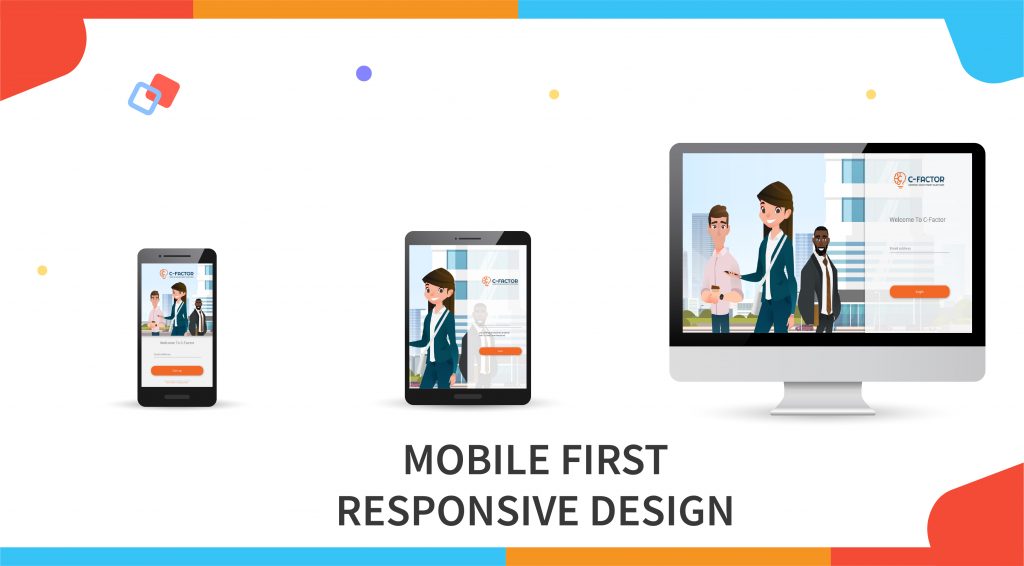
Rather than creating a desktop website and then forcing it on a mobile box, you build a website for mobile phones or devices before making correlate designs for traditional desktop and laptop computers. Moreover, since mobile designs are more difficult than desktop, the mobile-first approach makes it much easier to adapt responsive mobile designs to bigger screens and devices.
In fact, Google has made it clear that mobile-first is the way to go. With five billion mobile users not going anywhere and Google switching to mobile-first indexing completely in 2020, we have all the more reason to leave the past behind.
Today recruitment has enormously evolved due to digital technologies, with recruitment becoming 100% digital. Mobile platforms are now more important than ever, blazing a trail in this digital 21st century, presenting more efficient and effective ways to source top talent. Let’s face it: job seekers now expect to not only view jobs seamlessly on their mobile devices but also apply to them quickly.
Millennials and Smartphones: A Match Made in Heaven
Millennials have often ushered older generations in their adoption and use of technology, and this has increasingly accelerated over the years. Like Millennials, there has been a tremendous growth in tech adoption among older generations – particularly Gen Xers and Baby Boomers.
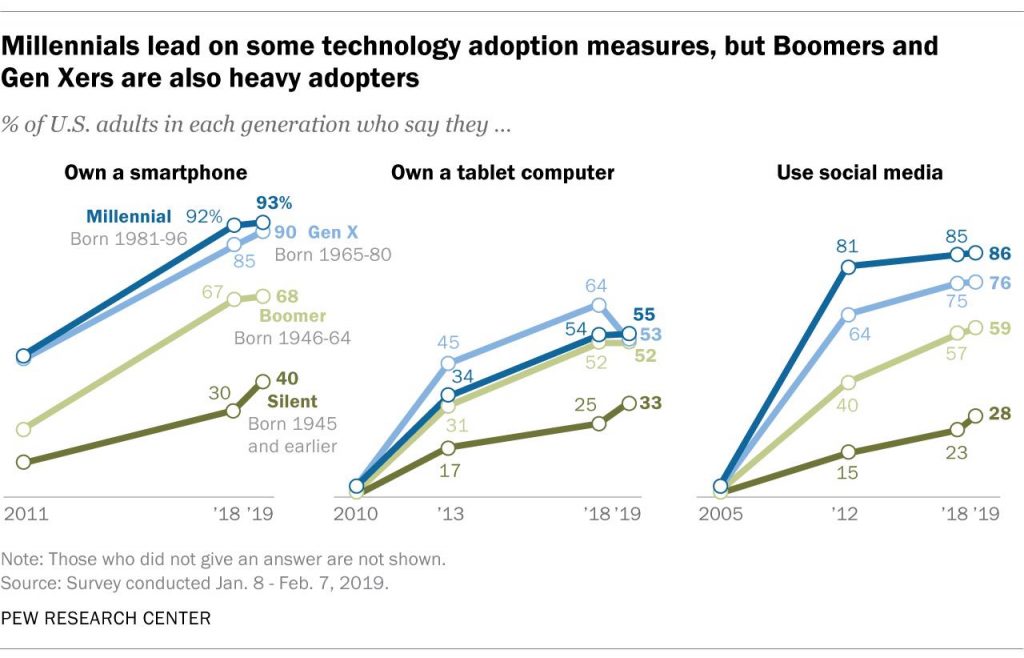
According to an analysis of a Pew Research Center survey of U.S. adults conducted in 2019, more than 93% Millennials own smartphones, compared with 90% of Gen Xers, 68% of Baby Boomers and 40% of the Silent Generation. So what can recruiters learn from these numbers? It’s time to have a smart recruiting tool – such as gamified assessments – in place to embrace the accelerating worldwide trend: Mobile-First.
For hiring managers, mobile recruiting is becoming an indispensable strategy for attracting Millennial candidates, who want to be able to go through the whole application process on their mobile phones —whether it is searching, applying, uploading their resume or giving the pre-employment test.
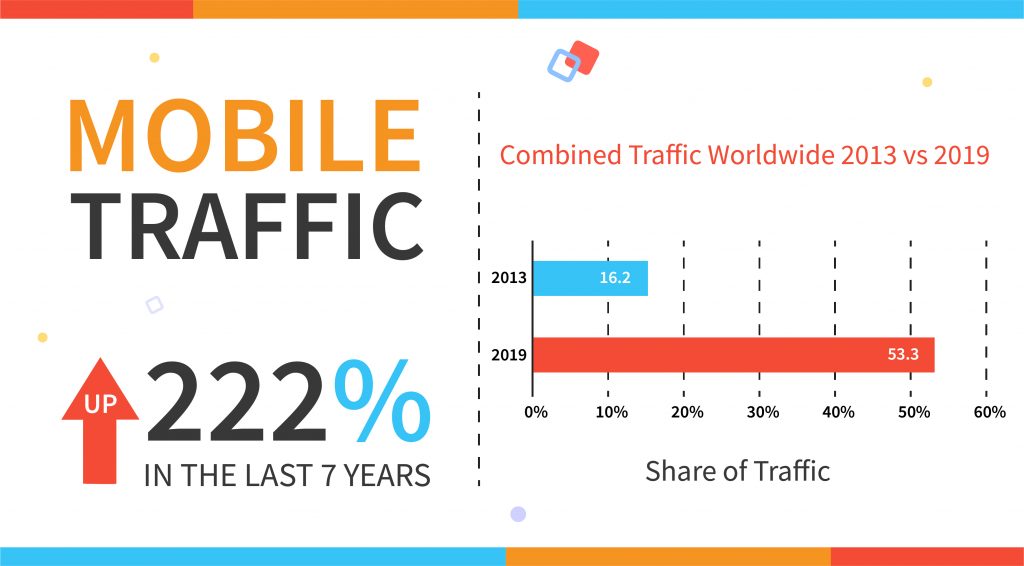
This is why, your organization needs to adopt an effective recruiting tool that can track, catch and evaluate the potential applicants on mobiles. If you fail to do that, you might end up losing up to 40% of your talent pool.
The Mobile-First Recruitment and Job Hunt
When it comes to seeking out information and interacting with the world, each generation has preferred its own different methods. The desktop PC that has been opening the gates for employment for a long time, but its reign might be behind us. Thanks to Millennials, recruiters need to ensure that they have a mobile-friendly recruitment strategy
The use of mobile phones in the hiring process marks a fundamental shift in the way people connect, communicate, engage, and recruit talent.
While you already know that Millennials are remarkably tech-oriented and spend a massive amount of time on their phones – way more than their Baby Boomer counterparts, you might be oblivious to the fact that 85% of Millennials use their phones when hunting for a job. This is primarily because many of us are usually on-the-go and have our phones always with us, we find it easier to seek out and secure promising new jobs on our mobile phones.
Moreover, approximately 45% of job seekers specifically search for jobs on their mobile phones at least once a day according to Glassdoor’s “A Statistical Reference Guide for Savvy Recruiters”.
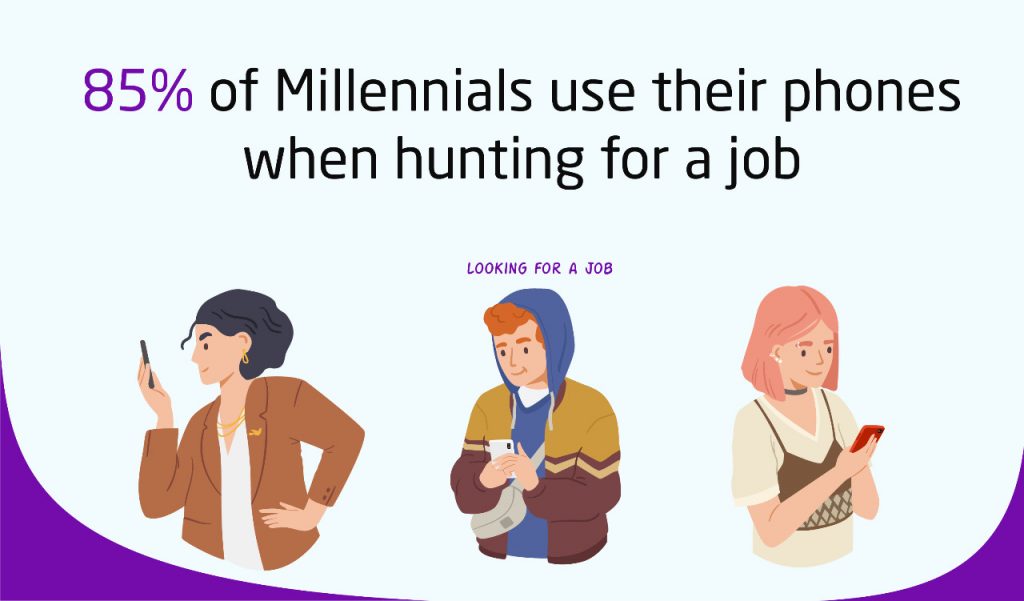
However, despite the fact that 80% of job searches begin on a mobile device, less than 2% of candidates complete a job application on mobile.
This calls attention to the inefficiency in modern recruiting. Of those candidates who find an open position on a mobile device, 98% tend to either complete the application on a computer or abandon the application. As a result of this acute problem, 76% of HR professionals are galvanized into acknowledging that mobile optimization is a priority within their organizations.
Tap into the Potential of Social Media
Millennials are specifically an important group because their age clashes with peak usage of many social media platforms by age. In fact, 79% of job seekers use a social channel to hunt for a job. This number ascends to 86% for those who are in the first decade of their working lives.
And now it’s evident that mobile and social media go hand in hand, recruiters need to understand why it’s essential to make social media a part of their mobile recruitment strategy.
Boost the Candidate Experience
A streamlined recruitment process enhances the candidate experience in unimaginable ways. It not only simplifies the application process but allows candidates to apply anywhere and everywhere – whatever suits their busy lives.
However, it’s more than just convenience. Companies that hit the right spot when it comes to mobile recruitment give a positive impression of themselves, something as digital and tech-savvy. This ultimately positively affects job seekers’ perception of the organization.
Time to Go-Mobile
Mobile is something that recruiters must not disregard when modernizing their recruitment processes. For talent acquisition managers who want to be able to reach Millennial talent, a mobile-first strategy is indispensable and simply the way forward.
